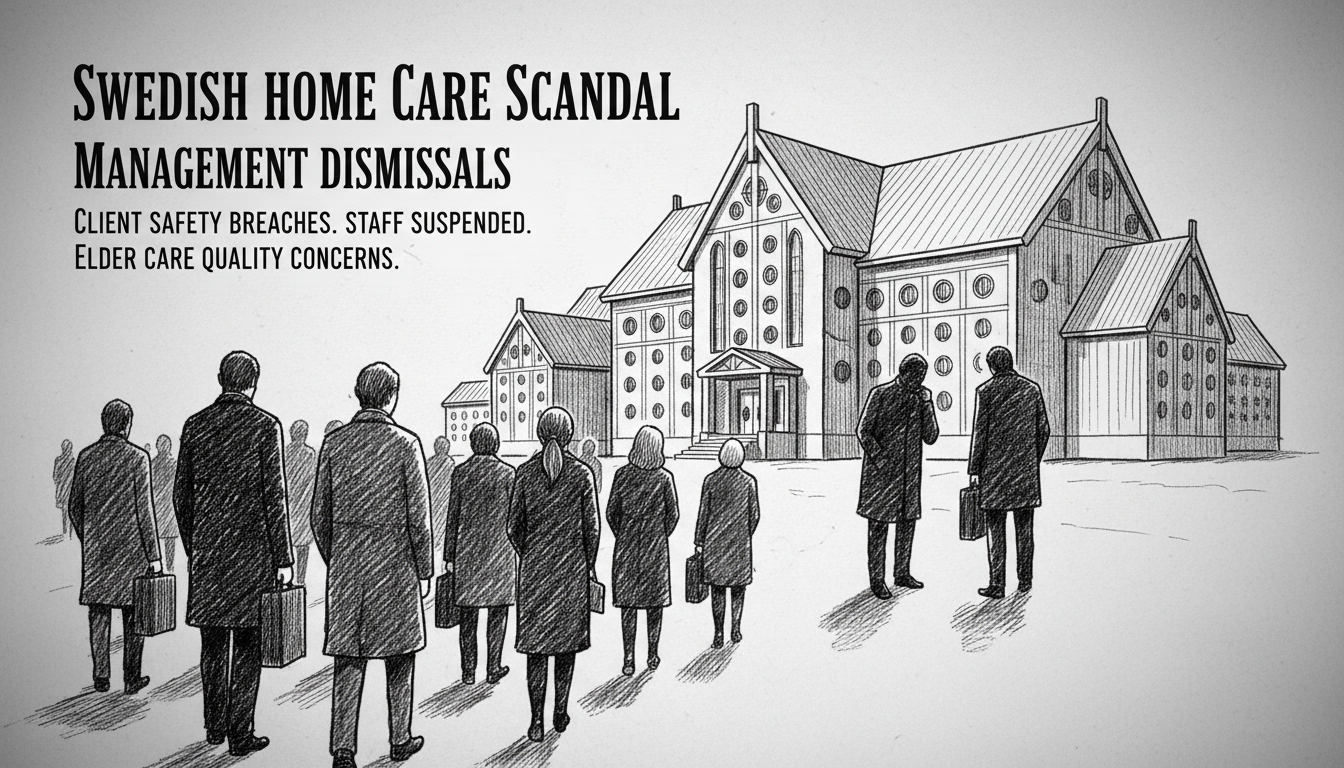Two senior managers in Uddevalla's home care services have been dismissed following a major quality scandal. Municipal Director Malin Krantz confirmed the leadership changes after an investigation revealed systematic failures. The Swedish government faces renewed scrutiny over elder care standards nationwide.
The investigation uncovered serious breaches affecting vulnerable care recipients. Krantz stated that employees had failed their clients while management negligence allowed problems to persist. This case represents another challenge for Stockholm politics regarding social welfare oversight.
Approximately twenty staff members from the night care team were suspended in early September. The municipality filed a Lex Sarah report detailing multiple violations. These included missed client visits, intimidating behavior by care staff, and employees sleeping during working hours.
Personnel consequences have been substantial throughout the Third Quarter. Three permanently employed staff members received dismissals while three temporary employees had their contracts terminated. Five individuals have returned to work but eleven remain suspended pending further investigation.
Historical context reveals this situation might have been prevented. Krantz acknowledged that a 2020 work environment assessment identified similar problems in the same unit. No corrective actions were implemented at that time despite clear warning signs.
The Riksdag building has seen repeated debates about Sweden's elder care system in recent sessions. Government policy Sweden initiatives have aimed to strengthen quality controls but implementation remains inconsistent across municipalities. This Uddevalla case demonstrates how local management failures can undermine national standards.
Swedish Parliament committees have previously investigated similar care scandals in other regions. The current situation raises questions about whether existing regulatory frameworks provide sufficient protection. Many international observers follow Stockholm politics closely as Sweden's welfare model faces demographic pressures.
Riksdag decisions on health care funding and oversight mechanisms will likely receive renewed attention following this incident. The government districts around Rosenbad continue developing responses to systemic care quality issues. This case highlights the complex balance between municipal autonomy and national quality standards in Sweden's decentralized system.
What does this mean for Sweden's international reputation for quality elder care? The gap between policy intentions and ground-level implementation remains a persistent challenge. Without better accountability mechanisms, similar scandals will likely emerge elsewhere in the Swedish care system.

